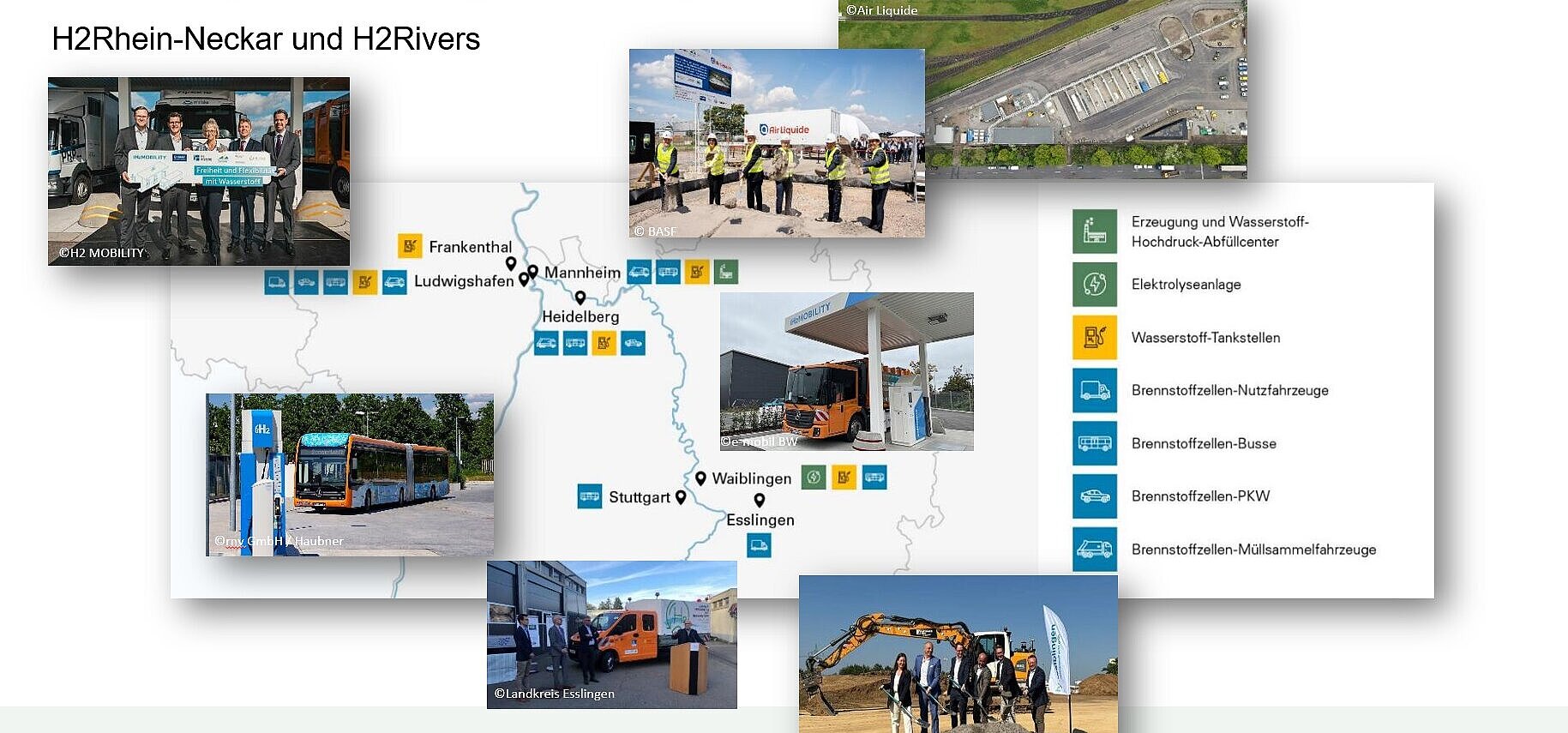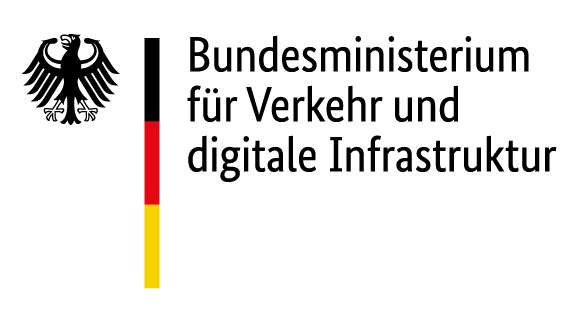
The H2Rivers and H2Rhein-Neckar demonstration projects highlight the potential of hydrogen and fuel cell technology on the Rhine and Neckar rivers. A local value chain has been established for the production, distribution, and consumption of renewable hydrogen. The projects are being implemented by public transport, waste management, and fleet operators, manufacturers, and distributors of green hydrogen, as well as the participating municipalities. H2Rhein-Neckar and H2Rivers are raising awareness of hydrogen and fuel cell technology and providing important impetus for the establishment of regional hydrogen value chains.
With the resulting showcase for fuel cell mobility, the Rhine-Neckar metropolitan region has already been able to present itself in its pioneering role at trade fairs and events. With the H2 Hub filling center on Friesenheimer Insel and the hydrogen filling stations that have been built, the supply infrastructure has been successfully established. An electrolyzer in Waiblingen is still under construction. The “HyPerformer” project, which is funded by the federal government with €20 million, thus also provides an important basis for the H2Rhein-Neckar project, which is being implemented in parallel.
The state-run project H2Rhine-Neckar, which is funded with €16.78 million from the Strategic Dialogue for the Automotive Sector in Baden-Württemberg, focuses on emission-free local public transport in Mannheim and Heidelberg. Here, the entire fleet of 40 articulated buses is being replaced by fuel cell range extender buses. The necessary infrastructure was also set up at the depots to supply the buses with the required hydrogen and electricity. Accompanying the investments, the technical and economic challenges of a fleet conversion were examined. The project provides concrete guidance for the planning, implementation, and scaling of zero-emission bus fleets in urban areas.
The findings of the H2Rhein-Neckar and H2Rivers demonstration projects are providing impetus beyond the borders of the Rhine-Neckar region. Challenges such as supply bottlenecks, legal requirements for hydrogen storage, and delays due to nature conservation laws illustrate the complexity of such transformation projects. However, they also highlight the need for early planning flexibility, integrative approval strategies, and reliable funding mechanisms.

